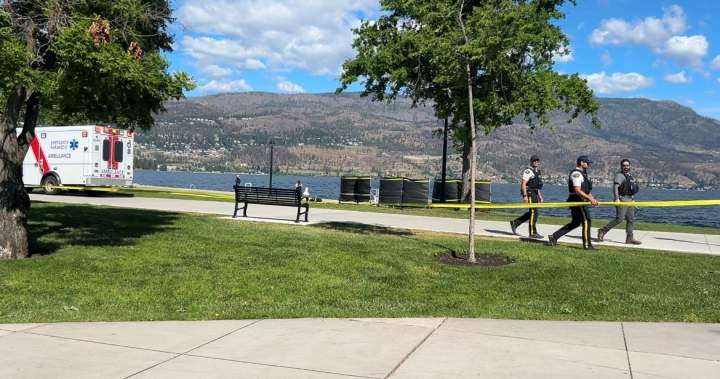Okanagan Lake is a huge draw for locals and visitors alike.
Often referred to as the ‘jewel’ of the Okanagan, the lake offers opportunities for all sorts of water activities, including swimming, boating and paddling.
However, the popular lake also has a dubious distinction.
According to a new report by the B.C. Coroners Service, Okanagan Lake is the deadliest lake in the province.
The report states that out of the 244 accidental lake drownings over the past decade, between 2014 and 2024, 28 have occurred in Okanagan Lake.
“It’s too many,” said Kelowna resident Brett Haney.
Those 28 deaths are far higher than that of the second deadliest lake in B.C., Harrison Lake, which saw 12 people drown in the same time period.
“These numbers, they’re staggering and they are really tragic,” said Brian Twaites, paramedic public information officer with B.C. Emergency Health Services.
The report also stated that 261 people unintentionally drowned in rivers and creeks across the province in the last 10 years, with the Fraser River claiming the most lives at 53.

Get daily National news
Get the day’s top news, political, economic, and current affairs headlines, delivered to your inbox once a day.
According to the Coroners Service, the vast majority of drownings in any type of body of water involved males — 735 males compared to 200 females.
The report also revealed that the use of alcohol and/or drugs contributed to 40 per cent of the drowning deaths.
“Not only swimming, but water activities, paddle boarding, out on a boat, just floating around — all of that stuff when incorporated with any form of alcohol use or substance use can really put you at a higher risk for drowning,” Twaites said.
Twaites said that many drowning deaths are preventable, adding that precautions can help reduce the chances of drowning.
One of the key protective measures is the use of life jackets of PFDs (personal flotation devices).
“They really do save lives,” Twaites said. “Make sure you’ve got a life jacket or a PFD with you and that you’re wearing it, not that it’s just on the boat, that you have it somewhere with you. I’ve seen people out on paddle boards, they’ve just got a life jacket strapped to the end of the paddle board and that’s not going to really do them much good if something happens.”
While troubling, it’s hoped the report serves as a reminder, during national drowning prevention week, to always make water safety a priority.
“People sometimes are caught up in the moment and they are having fun and don’t think about it and these unfortunate tragedies can happen in a matter of seconds,” Twaites said.
For more information on water safety, you can go to the B.C. and Yukon branch of the Lifesaving Society website.
Read the full article here

